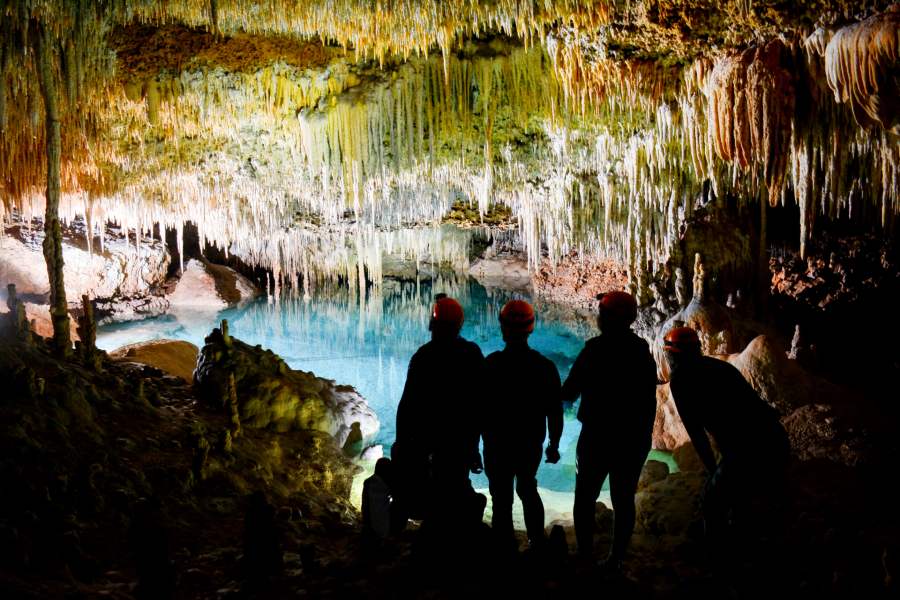More than ever, tour and activity operators are coming together (virtually) to support one another during these challenging times. Well, what if I told you that you could do the same in your local community by joining forces with your neighbours for a stronger comeback after all of this is over? Find out more below.
Sometimes, it takes a village to raise a business. What I mean to say is, it can be extremely challenging trying to compete in a marketplace on your own. But it doesn’t have to be that way. By starting a local collective, you can have the backing of a team of experience providers working together and pooling their resources to promote things to do in your area — in a way that benefits all involved.
Wait. Aren’t collectives more for artists, musicians, and filmmakers? Yes and no. You see, a collective can be any group of like-minded individuals, entrepreneurs, or locally-owned businesses who share a common goal. In the tours and activities industry itself, we’ve seen operators, and even independent tour guides, commit themselves to collaboration, strengthening the sector within their location, and giving back to the community.
For example, Adventure HUB is a collective based in and around the Canadian Rockies, made up of dedicated and passionate hosts who strive to deliver unforgettable moments for adventure seekers. Including Canmore Cave Tours, Mystery Towns, and many others, each member contributes to showcasing what else there is to do nearby, encourages the adventure to continue after checkout, and keeps the bookings going around.
It’s a win-win-win.
So, if you’ve ever wanted to work more closely with your neighbours, or never heard of what is a collective before, here are some of the amazing benefits:
1. Provides a one-stop-shop
With a shared website, guests can quickly discover and book multiple, complementary experiences without having to bounce around Google and other channels. All in one place, organized by activity-type, they can learn more about each operator, check out reviews and photos, view all of their available offerings, and make a booking, right then and there.
Although online travel agents (OTAs) already do this, having a collective gives operators a chance to stay in control, put their listings at the forefront, store and harness valuable booking data, and avoid high commission fees. In fact, members can agree to use the commissions from the main website to invest back into marketing, while also earning a percentage on the bookings they make on behalf of each other.
While members don’t necessarily have to use the same booking system, it does make the process more streamlined and straightforward. For instance, operators can easily integrate the central booking portal on their separate website, reduce administration by automatically updating availability, and better manage their extensive network of partner accounts.
P.S. Checkfront supports partner accounts and easily integrates across multiple websites. Request a demo.
2. Increases brand exposure
Cross-promotion is a powerful marketing technique. Most guests trust a referral from a business they’ve already booked with, especially after they had an incredible time and built rapport with the staff and guides. Now, imagine what that would look like on a much larger scale beyond a two-business partnership.
In a collective, your members have no problem recommending another for guests looking to explore more. And since you build relationships with operators, you can easily talk each other up in detail and help guests develop an emotional connection before even booking.
“Oh, you’d also like to go horseback riding, I know just the operator, Trot Stables. Sheila, she’s the owner and has been running it for about 18 years. She takes outstanding care of her horses and knows all the best trails around here. Just make sure to ask for Becky, a horse, not a guide. She’ll take it slow and easy. Let me make a booking for you.”

3. Learn from each other
By hosting regular meetings, a collective can come up with co-marketing strategies and keep on track towards their common goals while keeping the lines of communication open. Of course, there’s still freedom in how every operator runs their own business. Nevertheless, these meet-ups also help every member feel involved in decision-making, collaboration, and the future of the collective.
Not only that, but it also gives everyone an excuse to get together amidst their busy lives and seasons. After a long day, operators can catch up on what’s new, bounce ideas off each other, talk openly about what’s working and what isn’t, and even ask for advice. In a way, it creates a support system of experts in your location who can relate to the unique challenges you face every day.
4. Boosts brand equity
Your tribe is your vibe. You’ve probably heard this saying before in reverse, but when it comes to business partnerships, it works the other way. That’s because who you do business with speaks volumes about who you are as a company. In other words, you can actually take on the brand of your collective through the power of association.
Let me explain. When first starting a collective, you have to define your brand by looking at similarities in the group and deciding what the collective should represent as a whole — whether that be ecotourism, extreme sports, social responsibility, or anything else. As a member, your brand will gain a collective stamp of approval that it stands for the same, substantially boosting your brand equity in that area.

5. Attracts media attention
When one business does something, it might get a feature in the local newspaper. But when many do something together, it’s seen as a movement — it’s unique, it’s interesting, it’s attention-grabbing. This is gold for media outlets. Usually, they’re more than happy to cover anything an organization does because they know it’s share-worthy news for the local community, or better yet, the industry.
That means you have leverage for pitching to online and offline publications. Whether you want to generate buzz around your launch, reach a bigger audience for a contest or event, or, most importantly, gain traction and interest for a meaningful cause, it’s easier to stir up excitement around a group initiative.
6. Appeals to locals
Correct me if I’m wrong, but most locals typically don’t turn to TripAdvisor and other OTAs when looking for things to do nearby. For the most part, they tend to associate those sites with travel planning and instead, check out Google Maps, Yelp, and other local listings, while proceeding to book directly through an operator’s website, make a call that isn’t long distance, or quickly stop by.
Also, many locals want to support more local businesses, and a collective of experience providers is something that they can get behind, feel a part of — proud of even. That’s because it represents their home and showcases everything brag-worthy about where they live, from the scenery and wildlife to the hidden gems, to all of the adventures they can have in their backyard.
Not to mention, you can quickly expand your local reach, seeing as every operator has their own network of family, friends, and peers who will most likely talk about and support the collective.

7. Save more, donate more
Running a tour company costs money, and if you want to grow, you often have to spend more to make more. That’s the reality. But in the same way that friends can go in together on appetizers, a collective can save money by marketing as a group, sharing resources, and adding value to experiences by creating packages without building an entirely new product.
At the same time, you can use the collective as a platform to support a worthy cause. With your combined budget and efforts, the group can drive more traffic to the website and give people a reason to book knowing that a small percentage of the total will go toward an agreed-upon charity, like giving back to the community.
Final thoughts
Being a business owner is no easy feat — it’s okay to need help from time to time. By starting a collective, you’ll have regular access to a support system, while also helping to stimulate economic growth individually, as a group, and in your community.
Are you ready to get started? Check out this advice first from Adventure HUB, a collaborative that’s already paved the way, in part 2 of the series: How to Start a Collective of Local Experiences.

Take your business to the next level!
Online bookings. Flexible pricing. Outstanding support.



